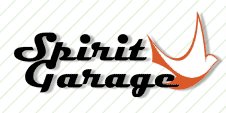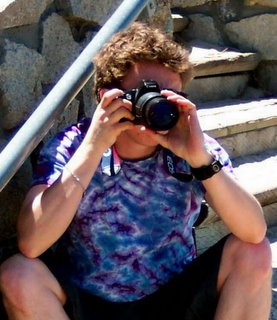One of the issues raised is a concept that I've been working with for a few years, but doesn't seem to have caught on broadly- not erasing the identities of people who identify differently. That means, not saying that there is only one way to identify as X or only one meaning for the identity of X, or alternatively, that to identify as X is different from Y (OK so far) because X is just [insert insulting stereotypes here]. (Some day, I'll look up the references to "not erasing" and list them here). To me*, it seems that intersex communities have a dilemma when it comes to not erasing: how to have the identity mean something different from trans about specific bodily/medical-related experiences, while not erasing anyone within the intersex community who uses the term as an identity marker. In my expereince, this is at least partly in response to some transgender people who feel that their own gender variance is biologically-based and want to idetify as intersex as a means of legitimizing this. While self-labelling and not erasing seem to be in harmony, in this case they may be in conflict, given that someone without the experiences of bodily sex difference and/or medicalization of that difference does not share the experiences of intersex realities, and thus the choice to self-label as intersex by a person without such experiences erases those experiences in using the label.
*The intersex discussion is outside of my own experience. However, the whole discussion seems to closely parallel the ways in which communities of autistic spectrum people have chosen to identify as autistic versus using the person-first construction common in much disability-rights rhetoric. The link above also has articles on responses to organizations that deny autism as an identity, of varying degrees (uncanningly parallel to how there is disagreement within the intersex community not only regarding medicalization/"cure" of intersex, but also disagreement regarding some org.s of people with intersex that limit how intersex is used as an identity).
It's complicated, because the idea of not being a thing that you have not freely chosen, such as medically intersex or neurologically autistic should be a freedom of self-definition (you can choose whether to use a diagnosis as part of your identity or as an external imposition). Yet, the danger in overemphasized this freedom is to disallow people who do claim what has been pathologized as a positive piece of personal identity. So, while I'm generally in favor of referring to others in groups or individually as "people with autism" or "people with intersex conditions," it is equally respectful to use "autistics" or "aspies" if someone/a group asks to be referred to as such, or to use "intersex people" if someone publicly identifies as such.
Part of this whole discussion also rests on the Social Model of Disability discussion. *BIG Caveat- I am not referring to intersex physical/medical realities as disabilities. Some intersex realities are intertwined with other disabled realities, which is also not my point here. Rather, the medicalization and pathologization of intersex bodies seems to closely resemble the ways in which physical/cognitive/emotional variations in humans have become a means of social marginalization. More information on the Social Model of Disability:
ILRU Disability Timeline Analysis
Disability, Identity, Difference
ILRU Youth Training Manual- see pages 13-14
The conflict should not be that there are differences in self-understanding and experiences of similar characteristics, but that there are universal statements made in this. This reminds me of a dialogue at a place where I worked with co-workers of many disability experiences/identities. Some of the workers/people requesting services referred to themselves as "quads" or other such terms, including "crips." Others were offended by this, and asked the people not to use such terms for themselves. Having grown up stating repeatedly that I was not "a diabetic" but a "person with diabetes" (which is how I continue to identify this part of myself), I understood the disability rights implications of humanizing people with disabilities versus pathologized identities. Yet, the piece of deciding for oneself which terms someone wished to use made sense to me too.
As an adult, I've been comfortable identifying as autistic or an aspie since I figured out that piece of my identity/experiences. But I still don't identify as diabetic, even though experiencing diabetes has been a large part of my worldview. I identify as a transguy and to simplify at times, an FTM, but those are about the only words I'll use as nouns for myself. Queer and transgender, genderqueer and "bisexual" when necessary, I do not use for myself as nouns. They are parts of my identity, but adjectively so. I don't feel a need to use "person who is genderqueer," but "a gender queer person" is sufficient.
I think this question is bigger than it seems.
- How do we integrate parts of ourselves which have been pathologized into our identities? Must we?
- What difference does it make how our experiences are dealt with, and what exactly those experiences are?
- What is the difference between describing an experience/identity piece with an adjective versus objectifying it as a noun?
- When and how is it important to stress the humanity of people who have been dehumanized, versus when is it important to reclaim as positive identities the dehumanizing oppressive slurs?
- How can we build communities that allow for self-labeling, while claiming some common identity or experiences? (Perhaps the One Community Pledge is an example of attempting this)
- What difference does it make to frame something as an experience versus identity-marker?
I've thought about this a lot regarding so-called invisible disabilities versus more typically apparent disabilities, and it seems to me that there is frequently a social need to downplay apparent disabilities and alternatively to assert less-apparent disabilities. This seems to me to be related to how people with disabilities choose to self-identify. Yet, in my experience, this is only a partial factor.
Any thoughts? Especially from people who identify as intersex?



 AUTIES.ORG: Autistic-run and autistic-friendly businesses/workers
AUTIES.ORG: Autistic-run and autistic-friendly businesses/workers

